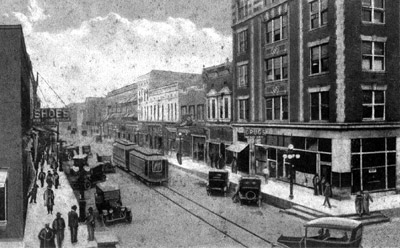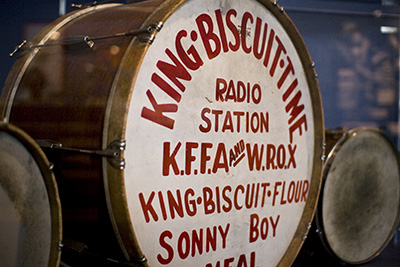In his book Life on the Mississippi, Mark Twain described Helena as occupying “one of the prettiest situations on the Mississippi”. Nearly 150 years after Mark Twain shared this observation, the city continues to offer a unique brand of Delta charm.
Lying in a valley of Crowley’s Ridge, a geological formation, Helena-West Helena’s hilly landscape distinguishes it from the typically flat marshlands of most Mississippi and Arkansas Delta towns. The current city represents a consolidation, effective on January 1, 2006, of the two Arkansas cities of Helena and West Helena.
 The city traces its historical roots back to the founding of the port town of Helena in 1833 on the Mississippi River, which began its emergence as a major port shortly after steamboats began traveling the river in 1811. The agricultural wealth of Arkansas’s eastern Delta region flowed through Helena, AR and it was here that the culture of the Deep South made its most enduring penetration into Arkansas.
The city traces its historical roots back to the founding of the port town of Helena in 1833 on the Mississippi River, which began its emergence as a major port shortly after steamboats began traveling the river in 1811. The agricultural wealth of Arkansas’s eastern Delta region flowed through Helena, AR and it was here that the culture of the Deep South made its most enduring penetration into Arkansas.
Pinned between the river on the east and Crowley’s Ridge immediately to the west, Helena, Arkansas was unable to accommodate the industrialization that began reaching the area in the early 20th century. Thus, West Helena, AR was founded in 1909 to the west of Crowley’s Ridge around the factories and mills for which Helena had lacked the space. After the cities consolidated into one, they collectively became known as Helena-West Helena. Throughout this website, Helena-West Helena is referred to simply as Helena for ease (Helena-West Helena is a bit of a mouthful).
The city of Helena was the site of the Battle of Helena fought in 1863. The battle was started by Confederate forces in an unsuccessful attempt to oust the Union Army from Helena in order to help relieve pressure on the strategic river town of Vicksburg, Mississippi. As a Union occupied city in the South, Helena served as a safe haven for runaway slaves during the war and was the training ground for several colored regiments. Helena also contributed seven generals to the Confederacy, three of whom are buried in Helena’s Confederate Cemetery, the most famous of which is Patrick Cleburne.
 In the 1940s and 1950s, the city grew into a vibrant blues community. As a thriving port town along the Mississippi, Helena was a stop for traveling musicians from all over the South.Today, Helena is still home to the longest running blues radio show in the country, King Biscuit Time, which helped spark the careers of many famous musicians.
In the 1940s and 1950s, the city grew into a vibrant blues community. As a thriving port town along the Mississippi, Helena was a stop for traveling musicians from all over the South.Today, Helena is still home to the longest running blues radio show in the country, King Biscuit Time, which helped spark the careers of many famous musicians.
Today, Helena serves as the County seat for Phillips County, Arkansas and is home to just over 12,000 people. There are a multitude of reasons to explore Helena including but not limited to: historic downtown Cherry St., unique natural assets, most notably the Mississippi River, rich blues heritage best explored at the Delta Cultural Center and the Helena Museum of Phillips County. Numerous Civil War Helena sites offer a unique “you were there” perspective, and tell more than just the typical story. Please use this site to explore what we have to offer and don’t hesitate to email or call with any questions. Beyond our attractions, Helena is probably best known for its people and our small town hospitality. We are genuinely delighted to invite you to visit the place we call home, so come on!

